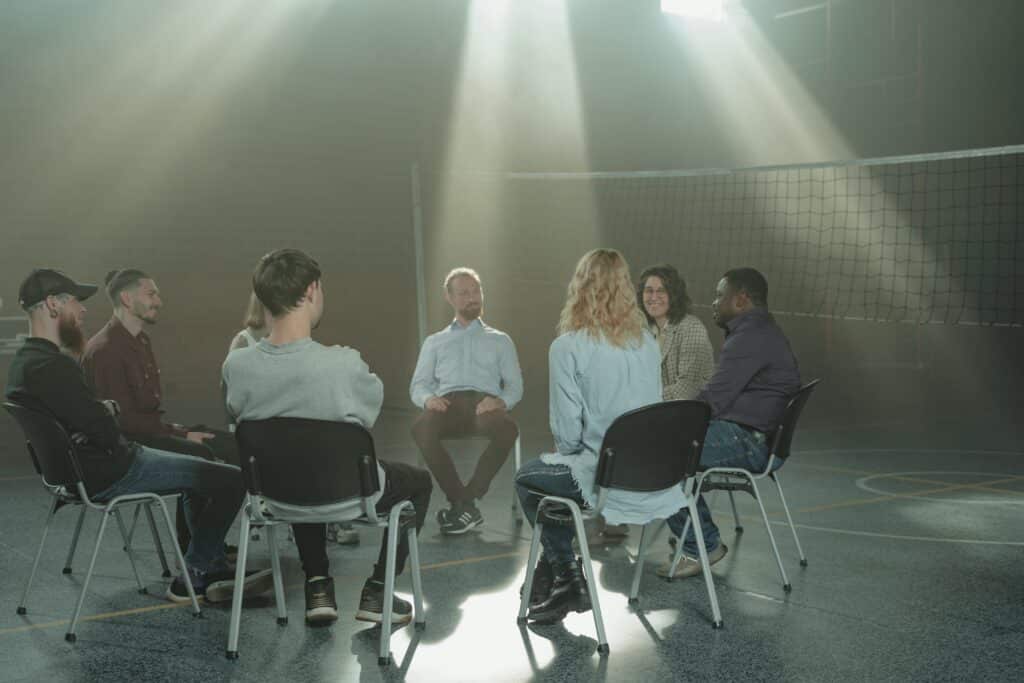
Understanding the benefits of counseling in addiction recovery is crucial: It’s a marathon, not a sprint, towards overcoming opioid addiction.
The road to recovery from opioid addiction can feel like an uphill battle. It’s critical to stay focused on the treatment plan for long-term success. Much like other chronic diseases, effective addiction treatment requires continuous evaluation and behavior modification when necessary.
With substance use counseling, you become better equipped to fight the constant battle against cravings and avoid relapse. The way counseling works in recovery may evolve over time, but that’s a necessary part of the process.
In the beginning, the focus may be on identifying, managing and coping with triggers when you feel anxious. Later in recovery, the focus turns toward past events in your life that may have brought on the addiction.
Because addiction affects all areas of your life, a whole-patient approach to treatment is essential. There are a variety of stressors that can make sustaining recovery challenging. Examples of stressors can include the following:
- Mental: Sudden life stressors that leave you struggling with how to cope
- Social: Actively maintaining contact with friends in your social circle who still use drugs can be challenging while engaging in a treatment program.
- Physical: Experiencing withdrawal symptoms along with not getting proper sleep or proper nutrition
Counseling serves as a progressive tool that helps you adopt a healthier way of managing stress. It’s also helpful in changing behaviors related to drug use. You can work on learning healthy life skills that will help you stay the course and better your life.
The path to counseling is not always direct. You want to build a support system as you work through counseling to ensure a successful path to long-lasting recovery. The support of family and friends you need may be hard-earned, however.
Elements of addiction may have caused rifts between you and your loved ones. But these bonds can be amended and built on as time passes while you make improvements. A support network creates a safety net when presented with the stressors previously mentioned. It makes you feel connected and can allow you to ask for help and encouragement.
Importance of Counseling
Opening up about addiction can be scary. Still, recovery requires a team approach, which means thinking you can go it alone may not ensure your success. The first step is admitting to yourself that you need help.
Seeking help is not easy because feelings of shame may push you into a state of continuous denial or avoidance. When you deny the problem, you also delay treatment, which has the potential to worsen your physical and mental health.
Honesty is essential here because it sets you on the path to recovery. Once you can admit to yourself that you have an addiction, you open yourself to getting help. Admitting your situation to friends and family is the next step.
Surrounding yourself with the necessary support takes time and patience, but the benefits of lasting success are worth it. Consider the following steps when you are ready to share the truth about your addiction and begin to get better:
- Take responsibility for your behavior: Explain to your family and friends that you recognize the choices that you made are your responsibility. Apologize for any way that you may have mistreated or disrespected them.
- Educate friends and family: Help them understand that addiction is a disease. The road to recovery is long, but speaking your truth to them is an excellent start down this path. Also, express to them that you have a desire to change.
- Let them know what they can do to help: Let your friends and family know that you need their support. They can help you research to find services such as MAT. Through this, they understand that their participation is a key part of your recovery.
With a healthy support system in place through family and friends, moving on to treatment programs feels easier. These programs include counseling support, which can be an effective way to continue the journey of recovery.
What is Individual Counseling?

MAT programs that emphasize counseling services can help maintain recovery. They’ve proven to be more effective than medication or therapy alone. Since opioid use disorder changes how the brain functions, in MAT, you will be prescribed medication that helps to:
- Block the high received from opioids
- Offer relief from cravings
- Regulate brain chemistry and body function
Medication in MAT for opioid addiction avoids the risks of illicit opioids, effectively easing cravings and withdrawal symptoms. MAT is critical for treatment, and adding counseling helps ensure that relapse is less likely.
Counseling ensures that you’re following your treatment plan, including compliance with taking prescribed medication as directed by your MAT physician. The counseling component also becomes necessary because sometimes there are other underlying conditions such as trauma, anxiety, or depression involved.
These factors may be contributing to the opioid addiction. This is called a dual diagnosis. In order to ensure successful recovery, those issues also need to be addressed.
Group counseling vs Individual Counseling

Counseling in MAT programs can look very different depending on whether it’s done individually or in a group setting. Individual counseling gives you the opportunity to share openly with your therapist in a one-on-one setting.
Individual counseling happens in confidence. It’s tailored to your needs and allows the counselor to understand the issues that may have led to it. It may prove particularly helpful in instances where another mental health condition exists. Individual counseling can also help develop and improve your communication skills. You will become better equipped to express what you need to help you stay on the recovery path.
Your counselor can also teach you skills to speak with confidence when looking for or maintaining a job. These exercises can also help you make new friends that will have a positive impact on your life and recovery.
Group sessions are an opportunity to share experiences in a safe environment. They can help you recognize that you’re not the only one going through these struggles. These sessions also give you a means to both receive and give support.
Some types of individual and/or group counseling you can expect to receive when participating in a MAT program may include:
- Cognitive Behavioral Therapy (CBT): A type of individual counseling where you learn to recognize, avoid and cope with situations that may make you vulnerable to drug use
- Family Counseling: A form of group counseling with family members to address drug use patterns and strengthen family relationships, which may include Smart Recovery, a specialized addiction recovery support group
- Motivational Interviewing: A counseling approach used for both individuals and groups that focuses on moving you away from uncertainty and toward motivation to encourage behavior change
- Mindfulness-Based Therapies: Counseling that can be used in both groups and for individuals who use moment-to-moment awareness as a type of coping tool to prevent relapse and support abstinence.
Recovery is not a finite process. It doesn’t end with treatment. That’s why long-term addiction counseling is so important. It can help you manage potential triggers, cope with stresses and improve your chances for long-lasting recovery.
AppleGate Recovery has helped so many people reach their opioid addiction recovery goals through comprehensive MAT programs. Our specialized staff includes medical providers, nurses and substance use counselors who are here to help you. To learn more about how AppleGate Recovery can help you overcome addiction, message or call one of our convenient locations today.

Contact AppleGate Recovery Today
If opioid addiction is impacting your life or the life of someone you care about, reach out to our treatment center. We are here to provide the support and care you need to take the first step toward recovery.
Call 888.488.5337
